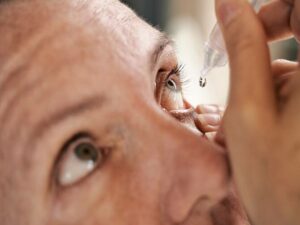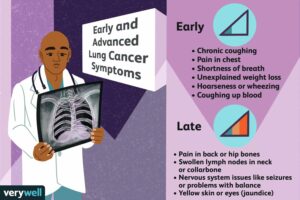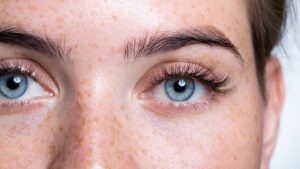HIV symptoms in women include fatigue, weight loss, fever, and vaginal infections. HIV symptoms in women can vary and may take years to develop into AIDS, the advanced stage of the infection.
It is important for women to be aware of these symptoms and to seek medical attention if they suspect they may have contracted the virus. Early detection and treatment can greatly improve the prognosis for individuals infected with HIV. Understanding the symptoms and being proactive about testing and treatment is crucial in managing the impact of HIV on overall health and well-being.
Table of Contents
Understanding Hiv And Its Impact On Women
HIV is a global health issue affecting millions of people worldwide. According to the latest statistics, approximately 38 million people are living with HIV globally, with around half of them being women. Women are disproportionately affected by HIV, accounting for more than half of all adults living with the virus. In sub-Saharan Africa, women constitute about 60% of the total number of people living with HIV. This disparity is primarily due to biological factors, as women are more susceptible to HIV infection during unprotected heterosexual intercourse.
Why HIV is a Silent Threat for Women:
HIV can go unnoticed in women for a long time, as the initial symptoms of the infection can be mild or mistaken for other common illnesses. This delayed diagnosis increases the risk of transmission and poses challenges for early treatment. Women may experience flu-like symptoms such as fever, fatigue, and body aches, but these can easily be brushed off as regular viral infections. It is crucial for women to be aware of the potential risk factors and undergo regular HIV testing to ensure early detection and appropriate medical care.
Across different regions, the prevalence of HIV varies among women. In some areas, such as sub-Saharan Africa, HIV prevalence rates among young women are significantly higher than in their male counterparts of the same age group. This is due to various social, economic, and cultural factors, including gender inequality, lack of access to education, and limited control over sexual decisions. Efforts to address these disparities and promote HIV prevention, awareness, and treatment among women are crucial in curbing the spread of the virus.
Early Symptoms Of Hiv In Women
HIV, also known as Human Immunodeficiency Virus, is a viral infection that affects millions of people around the world. It is essential to recognize the early symptoms to ensure timely medical intervention. In women, the initial signs of HIV may resemble flu-like symptoms, including fever, headache, and sore throat. These symptoms can often be overlooked or mistaken for other common illnesses. Another early symptom experienced by women is fatigue and weakness. HIV can cause a persistent feeling of tiredness that may impact daily activities. Additionally, swollen lymph nodes may occur in early stages of HIV infection. These small, bean-shaped glands play a crucial role in the immune system and can become enlarged as the body fights against the virus. Therefore, it is important for women to be aware of these early signs and seek medical attention if they experience any of them.
Manifestations Of Hiv In Different Body Systems
| Gastrointestinal Symptoms | Dermatological Symptoms | Neurological Symptoms |
|---|---|---|
| Nausea and Vomiting | Skin Rashes | Headaches |
| Diarrhea | Pruritus (Itchy Skin) | Cognitive Impairment |
Gastrointestinal symptoms of HIV in women may include nausea and vomiting as well as diarrhea. These symptoms can result from the virus’s impact on the digestive system.
Dermatological manifestations of HIV in women may present as skin rashes and pruritus, also known as itchy skin. These symptoms often arise due to the body’s immune response to the virus.
Neurological symptoms associated with HIV infection in women can include headaches and cognitive impairment. These manifestations occur due to the virus’s impact on the central nervous system.
Unique Challenges And Risks For Women Living With Hiv
Living with HIV poses unique challenges and risks for women, affecting various aspects of their lives. One area profoundly impacted is their reproductive health. Women with HIV face increased risks of complications during pregnancy, childbirth, and breastfeeding. They might also experience difficulties in accessing appropriate contraceptive methods, leading to unintended pregnancies and potentially transmitting the virus to their partners or children.
Furthermore, women living with HIV are more vulnerable to other infections due to a weakened immune system. Common infections such as yeast infections, urinary tract infections, and pelvic inflammatory disease occur more frequently and tend to be more severe in women with HIV.
Aside from physical health issues, social stigma and discrimination significantly impact the quality of life for women with HIV. Such stigma can lead to feelings of shame, isolation, and low self-esteem, making it harder for women to seek support and adhere to treatment. Discrimination in healthcare settings and society as a whole further exacerbates the challenges faced by women living with HIV.
The Importance Of Regular Hiv Testing For Women
Routine testing for HIV is crucial for women as it helps in early detection and prevention of the virus. Regular testing allows women to become aware of their HIV status and seek appropriate medical care and treatment. It also helps in preventing the transmission of HIV to sexual partners and unborn children.
Need For Routine Testing
Routine HIV testing ensures early diagnosis and timely treatment which can significantly improve the health outcomes for women. It reduces the risk of complications associated with HIV and AIDS, such as opportunistic infections, compromised immune system, and other related illnesses. Testing also helps in reducing the stigma around HIV and promotes a culture of open discussions and support for those living with the virus.
Testing Methods And Options
HIV testing can be done through various methods, including blood tests, oral fluid tests, and rapid tests. These tests are easily accessible and can be done at healthcare clinics, community organizations, and even at home with the use of self-testing kits. Healthcare professionals can guide women in selecting the most appropriate testing method based on their preferences and needs.
Access To Testing Services
Efforts should be made to ensure accessibility to HIV testing services for all women, regardless of their socio-economic background or geographical location. This can be achieved by providing information about available testing facilities, promoting awareness campaigns, and integrating testing services into routine healthcare check-ups.

Credit: www.everydayhealth.com
Seeking Early Diagnosis And Treatment
Early diagnosis and treatment of HIV in women offer several benefits. Firstly, it allows for the prompt initiation of antiretroviral therapy (ART), which helps suppress the virus and slows down the progression of the disease. With early treatment, women living with HIV are less likely to develop opportunistic infections and other complications associated with the virus.
Furthermore, early diagnosis and treatment provide an opportunity for preventive measures to reduce the risk of transmission to sexual partners and unborn children. Prenatal care can be initiated to prevent mother-to-child transmission during pregnancy. Additionally, being aware of one’s HIV status allows women to make informed choices regarding contraception and safer sexual practices.
Treatment options for HIV in women include a variety of antiretroviral drugs that can be tailored to individual needs. The U.S. Department of Health and Human Services provides guidelines for the appropriate use of these medications based on the woman’s stage of infection and overall health.
Finally, emotional and psychosocial support is crucial for women living with HIV. Support groups, counseling, and access to mental health services can help women cope with the emotional challenges associated with the diagnosis, reduce stigma, and improve overall well-being.
Empowering Women With Knowledge And Prevention Strategies
HIV Symptoms in Women is a crucial topic that deserves attention and awareness. Empowering women with knowledge about the symptoms of HIV infection is a vital step towards early detection and prevention. Women should be informed about the various signs that can indicate a possible HIV infection, such as persistent flu-like symptoms, fatigue, weight loss, and recurrent infections. It is imperative to stress the importance of safe sex practices to minimize the risk of HIV transmission. Education and awareness programs should be conducted to provide women with accurate and up-to-date information about HIV prevention and treatment. Pre-exposure Prophylaxis (PrEP) should also be highlighted as an effective method for reducing the risk of HIV acquisition. By equipping women with the necessary knowledge and prevention strategies, we can empower them to protect themselves and their community from HIV infection.
Overcoming Barriers To Hiv Prevention And Treatment
Gender inequality continues to be a significant barrier when it comes to HIV prevention and treatment in women. Addressing this issue is crucial in order to ensure equal access to healthcare and reduce the incidence of HIV among women.
| Removing Financial Barriers |
| Many women face financial challenges that prevent them from accessing HIV prevention and treatment services. It is important to provide affordable or free healthcare options to overcome this barrier. |
| Building Supportive Healthcare Systems |
| Creating healthcare systems that are supportive of women’s needs is crucial for effective HIV prevention and treatment. This includes providing gender-sensitive services, training healthcare providers to address the unique challenges faced by women, and increasing awareness about HIV among women. |
Frequently Asked Questions For Hiv Symptoms In Women
What Are The Common Early Signs Of Hiv In Women?
Common early signs of HIV in women include fatigue, fever, swollen glands, sore throat, and rash. However, it’s important to note that these symptoms can be similar to other illnesses, so testing is necessary for an accurate diagnosis.
Can Hiv Cause Specific Symptoms In Women?
Yes, HIV can cause specific symptoms in women, including frequent infections, pelvic inflammatory disease, and abnormal vaginal discharge. These symptoms may vary from person to person, so it’s crucial to get tested for an accurate diagnosis and proper medical care.
Are There Any Unique Hiv Symptoms That Affect Women?
Yes, there are unique HIV symptoms that affect women, such as changes in the menstrual cycle, unusual vaginal bleeding, and persistent yeast infections. These symptoms should not be ignored, and testing should be done to confirm HIV status and seek appropriate treatment.
How Long Does It Take For Hiv Symptoms To Appear In Women?
HIV symptoms can appear within 2 to 4 weeks after infection, but it can take longer for some individuals. It’s important to remember that not everyone will experience symptoms, and testing is the only way to confirm HIV infection accurately.
Conclusion
In a nutshell, being aware of the symptoms of HIV in women is crucial for early detection and treatment. From flu-like symptoms to pelvic inflammatory disease, ignoring the signs can have serious consequences. Regular HIV testing is essential, especially for those who engage in high-risk behaviors.
By understanding the symptoms and taking proactive steps, women can take control of their health and prevent further transmission. Stay informed, get tested, and empower yourself against this global health issue.








